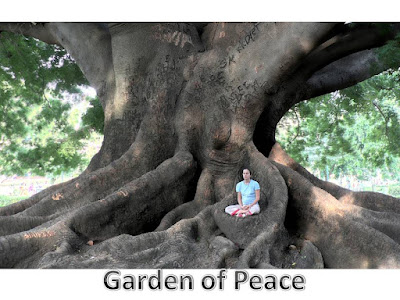
Geography in education
Lost in the post?David LambertInaugural Professorial Lecture
Institute of Education - 23rd June
Some say we live in postmodern times. In addition, many schools now seem to be embracing a post-disciplinary approach to the curriculum. And geography itself has fragmented, struggling for its identity and arguably lost - in the "post". But this lecture does not dwell for long on this argument. On the contrary, it argues that contemporary geography is a school subject of great significance and has a lot to offer children and young people growing up in a confusing, rapidly changing and dangerous world. Well prepared teachers can use this subject in a way that contributes to both their own and their students' "capabilities".Geography is re-emerging as a subject discipline for its times, both in academia and in the public realm. In the context of our collective need more fully to understand the human occupancy of the Earth, geography in schools has a new role to play. Geography in education explores this, and the importance of a "capability" approach. It draws critically on the Geographical Association's recently published 'manifesto' for school geography: A Different View.
Available to purchase from the IoE online shop
June 2009 978-0-85473-857-1 30 pages £5.00
Available to purchase from the IoE online shop
June 2009 978-0-85473-857-1 30 pages £5.00
There was an audience of around 250 people at Jeffery Hall for the lecture on a warm and humid night in London
David was introduced by Professor Geoff Whitty, director of the Institute of Education.
A few notes on some key points that David made during the lecture, which was split into 5 sections
- Why Geography ? - how geography represents the world - based on a question asked at a Harris Federation event
- The importance of relationships: with the children and learning, with each other and teaching, with the subject discipline (CPD)
- The difference between 'teaching by sat nav' and mapping out a direction for the subject - teachers need to be confident in the direction they are taking
- A philosophical 'map' for the subject: motivation, significance and creativity - what we do with students needs to be capable of changing the way they see the world
- All education is "self education" - possible to have learning without teaching and teaching without learning...
- Discussion on the 1970s and the 'great debate' - was the purpose of education to prepare people for work ? (link to arguments in 'Shift Happens')
- Comparison between a 'Vibrant City', which leaves us no time to think, and a 'Garden of Peace'
- QCA 'Futures agenda': skills removed from human context - re-asserting the creative power of teachers as curriculum makers
- Capability as a way of considering what is learnt - value-laden rather than value-free...
- Living Geography and 'A Different View' - the manifesto 'animoto' was shown (Director's Cut version)
- Conclusion: "subject disciplines such as geography are rich resources to be used by capable teachers in a rapidly changing world..."


A vote of thanks was given by Professor Michael Reiss, Dean of Research at the Institute of Edication.
A wine reception followed...
Any further thoughts from people who attended the lecture ?

Images on slides: Flickr users / Creative Commons - Cheddar, Today is a good day, Premasagar
Wordle produced by http://wordle.net
Geography happens with apologies to Karl Fisch
Comments
Having heard, from David Rogers today, of another outsider saying 'Geography wasn't like this when I was at school' underlines the importance of us taking the message to them.
Indeed... I think the longer paper has to be read really rather than just the 'potted' summary here...
'A different view' is a key document for our times...